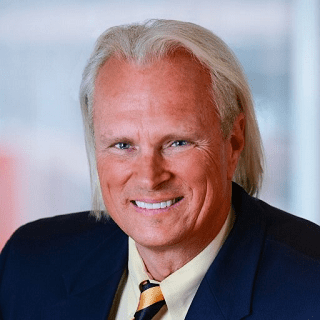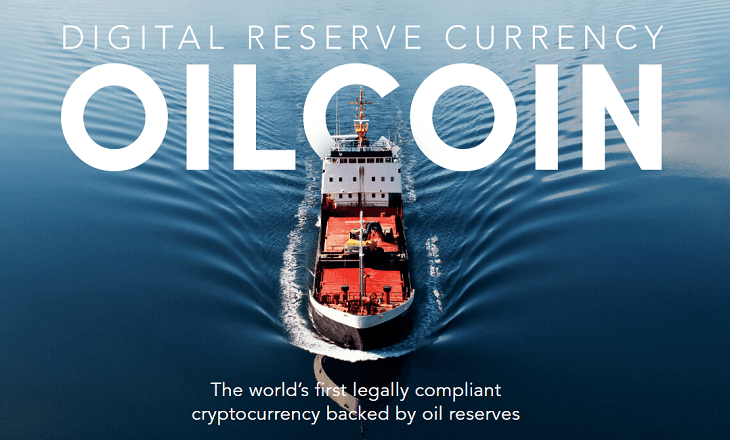In one of the most stark examples of “establishment” people jumping on the cryptocurrency bandwagon, former CFTC Commissioner Bart Chilton – one of the most recognizable faces and symbols of financial regulation – revealed this weekend that he is deeply involved in the ICO of a new token called OilCoin.
OilCoin plans to launch its ICO in January 2018.

Bart Chilton
As its name implies, OilCoin bills itself as the world’s first legally compliant cryptocurrency backed by oil reserves.
Each OilCoin will be supported by and represents the tokenized value of a single reserve barrel of oil. OilCoin stated that its tokenization of commodity value provides a safe haven from cryptocurrency volatility.
Post ICO, OilCoin intends to become an SEC registrant subject to periodic reporting requirements of the U.S. Securities Exchange Act of 1934.
Bart Chilton is one of seven executives listed among the “Leadership Team” of OilCoin. Included among the others are TPG Capital veteran Darius Brooks, noted corporate lawyer Daniel Eisner of DLA Piper, and Global Head of Technology for Credit Suisse Group AG (ADR) (NYSE:CS) Michael Pahlke.
From a quick look at his personal website bartchilton.com, it is very clear that former Commissioner (2007-2014) Chilton is very “into” the cryptocurrency and ICO world. The lead “story” on his site is a Forbes-based article entitled “Bitcoin’s $6,400 Price Tag Explained By Initial Coin Offering Craze“. The top two videos presented on the site of recent appearances by Mr. Chilton are on opportunities and regulation of ICOs, and on the decision of CME Group to launch Bitcoin futures.
Why not just buy Crude Oil related ETFs (and there are plenty to choose from) instead of OilCoin?
According to OilCoin, its unique entity structure is expected to provide a simplified approach to taxes for investors seeking to hold investments in oil. Unlike OilCoin, U.S. based oil ETFs subject holders to annual tax and tax reporting obligations due to allocations of income related to the ETFs’ oil holdings. In contrast to ETFs, but like other digital tokens, OilCoin is expected to be treated as property for U.S. Federal income tax purposes and will not allocate income related to OilCoin’s operations (including supporting oil reserves) to holders of OilCoin.
As a consequence of this structure, long term U.S. holders of OilCoin will not be subject to annual tax but instead will be taxed only upon their sale of OilCoin. Similarly (and unlike U.S. based oil ETFs), ownership of OilCoin does not subject non-U.S. persons to U.S. tax obligations. By separating the tax attributes of OilCoin from the tax attributes of its supporting oil reserves, OilCoin represents the creation of a new and unique financial instrument with potentially favorable tax treatment and return profile for U.S. and non-U.S. investors.
Technology-wise, OilCoin will be driven by Ethereum-enabled blockchain technology in order to provide a robust and decentralized method of verification, tracking and exchange. The Ethereum blockchain is expected to provide an auditable and cryptographically secured global ledger and will facilitate transactions with other familiar currencies and assets. In addition to the Ethereum blockchain, OilCoin will utilize audit methods to ensure that issued tokens are supported by sufficient oil reserve assets at all times. OilCoin will provide incentives to purchasers and sellers through customary sharing of transaction fees in the form of issuances of additional OilCoin.
Bart Chilton noted in a statement on OilCoin,
I think what you are seeing in OilCoin is a truly original and innovative endeavor focused on institutionalizing and professionalizing digital currency in a way that has never been done before. The OilCoin team is fully committed to setting and adhering to new standards for design and regulatory compliance of digital currencies. Once we get going, we envision holders of OilCoin will be able to participate in ordinary consumer transactions around the world. I’ve been saying for a long time that in order to gain greater acceptance in everyday commerce, something like what we plan for OilCoin is needed. Digital currencies will get there and OilCoin is well positioned to be the first.
